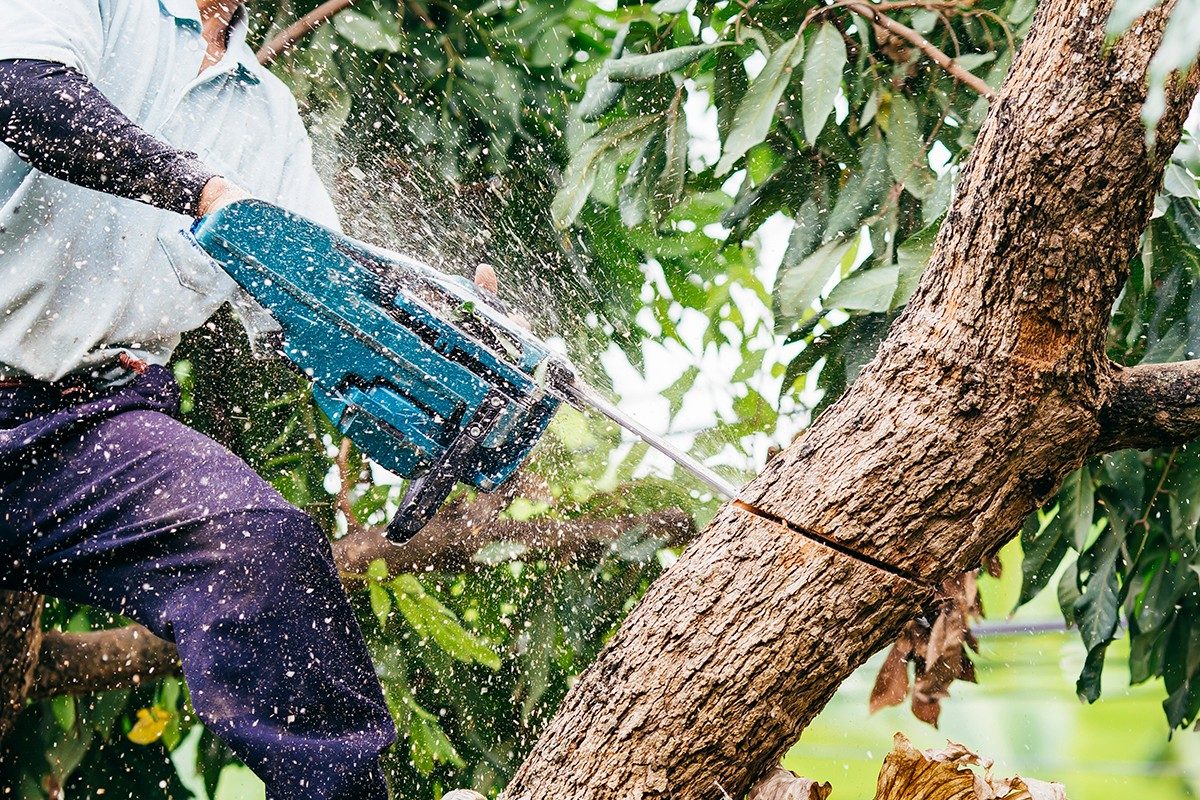
What Is Homeowners Insurance?
Learn about homeowners insurance and why it's essential to protect your home. Find out what home insurance covers and the basics of home insurance claims.

by Dawn Klintworth
If you live in a hurricane-prone area, you can take steps to prepare for these damaging storms. From having a plan to knowing what to do after a storm, consider these hurricane preparation steps to help stay safe, reduce stress and minimize damage.
Find out more about home insurance
Find out more about home insurance
According to the National Oceanic and Atmospheric Association (NOAA), the official Atlantic basin hurricane season runs from June 1 to November 30. Most of the hurricane activity happens between August and October.
Being prepared can help bring peace of mind. Develop evacuation plans and communicate them with your family. Have an emergency kit on hand in case a disaster strikes.
If you’re in the path of a hurricane, a comprehensive emergency plan will help you be more prepared and efficient when the threat arrives. Your emergency plan should include evacuation routes, safe meeting points, and communication plans for both your immediate and extended family members. Review your emergency plan regularly to make sure everyone knows what to do during a hurricane.
Talk with friends or family who live far enough away to be outside of a hurricane path. Make sure they would be willing to take you and your family into their home if you needed to evacuate.
Gather supplies and resources you need to stay safe and as comfortable as possible when a hurricane threatens your home. Make sure your emergency kit has supplies for at least three to five days.
The general rule is to have one gallon of water per person daily. If you have pets, be sure to account for their water needs.
Gather non-perishable food that is easy to access and prepare, like canned food and peanut butter. Be sure to include a manual can opener to access your food and find out if food assistance is available through agencies and organizations if your home is damaged by the hurricane. Again, if you have pets, be sure to include pet food in your emergency kit.
If your home was damaged by a hurricane, you will need access to these basic supplies to stay warm, comfortable and clean until you can start the recovery process.
Consider adding a NOAA Weather Radio so you can stay informed if you lose power and cell service. .
Light will be a critical resource even if your home isn’t damaged. If you lose power, having a flashlight will provide comfort and security for your family.
You'll want to have basic medical supplies in case you or someone nearby is injured. It may take some time for emergency medical teams to reach you.
Make sure you also have chargers and a backup battery to keep your phone charged and available. Include emergency contact lists in your phone contacts or create a physical list of emergency contact numbers.
Your tool kit should include a whistle to signal for help, and wrenches, pliers and hammers to secure your home.
Get more information to prepare for hurricanes and other disasters at Ready.gov.
Maintaining your home can help keep it protected from damage and flying debris during a hurricane.
Remove loose or decaying tree branches, especially those overhanging or near your home.
You’ll want to let the storm water flow freely without obstruction. Regular cleaning to remove leaves or other debris can help protect your home in a hurricane.
Have a place to store or secure your patio furniture, grills and other lawn ornaments that could become flying projectiles in hurricane-force winds. Reinforce any parts of a fence or other external structures that may be weakened or loose.
Whether you have storm shutters or sheets of plywood, if you live in a hurricane-prone area, be prepared to secure your home.
Before hurricane season, take time to meet with your insurance agent to review your insurance protection. From protection for your home to everything in it, make sure you have the level of home insurance protection to rebuild your home if it was damaged or destroyed by a covered event.
Don’t forget about flood insurance, which is not included in standard homeowners insurance. Most flood insurance is offered by the federal government, but COUNTRY Financial can help secure protection if you’re eligible. Also, if you have a basement and sump pump, discuss the importance of adding sump pump coverage to your policy as an add-on.
You’ve prepared for a potential hurricane. You’ve maintained your property and have a plan. But when you learn you’re in the hurricane path, you need to put your plans into motion.
Follow trusted sources such as the National Hurricane Center (NHC) or local weather service. Stay connected with local authorities to be aware of evacuation orders and other warnings.
With the storm on the way, shutter your doors and windows. When wind speeds max, you’ll want all the protection possible on the weakest parts of your home.
Keep your car gas tanks full. When everyone is trying to evacuate, you don’t want to be sitting in line at a gas station. When it’s time to evacuate, pack your essentials and hit the road.
If officials recommend you evacuate, then evacuate. Contact your friends or family and let them know you’re on the way. If you don’t have anywhere to stay, explore hotels or even shelters in communities outside the path of the hurricane.
When you decide to leave your home to escape a hurricane, you just hope to return home as soon as possible to start recovery. Before returning to your home, wait for authorities to determine the area is safe. There could be downed power lines, gas leaks or other hazards.
If your home was damaged, start the recovery and home insurance claim process.
If you have a home insurance claim, call directly or submit a claim online or through a mobile app. The quicker you report your claim, the better. COUNTRY Financial clients should contact 866-COUNTRY (866-268-6879)..
Following disasters like hurricanes, public adjusters often solicit business and could appear at your front door offering to help with your claim. These adjusters are independent, but you can hire them. Ask questions, check credentials and understand their fees before signing anything. Your COUNTRY adjuster is trained to get your home insurance claim moving quickly to help you recover.
While you’ll likely find many helpful people when you’re starting to rebuild or repair following a hurricane, keep in mind that not all people are acting in your best interest. Again, ask for credentials. Your insurance company may be able to help you find authorized contractors for your specific damage.
Talk with your insurance agent about the right protection for your home and your situation. Discuss if you should add flood insurance and sump pump coverage to your insurance portfolio and review your home insurance coverage regularly.
Save this Hurricane Safety Tips Checklist and keep it available in case you need it.
Updated 5-31-23

Learn about homeowners insurance and why it's essential to protect your home. Find out what home insurance covers and the basics of home insurance claims.

Make sure your home insurance will help you rebuild if your home is damaged during a storm.

Get the facts about public adjusters and your insurance claims.
Start a quote or call us at 866-COUNTRY (866-268-6879). Find out more about home insurance.
Contact your rep or call us at 866-COUNTRY (866-268-6879). Find out more about home insurance.
Home insurance policies issued by COUNTRY Mutual Insurance Company®, COUNTRY Casualty Insurance Company® or COUNTRY Preferred Insurance Company®, Bloomington, IL.
COUNTRY Financial® is a family of affiliated companies (collectively, COUNTRY) located in Bloomington, IL. Learn more about who we are.
We take pride in providing accurate, truthful information in our articles. See our editorial standards to learn more.